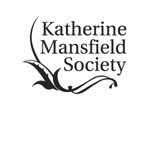04 December 1920
04 December 1920
4 December 1920
Villa Isola Bella, Menton, France
I made these notes. Read them, will you?
The Lost Girl
Its important. It ought not to be allowed to pass.
Lawrence denies his humanity. He denies the powers of the Imagination. He denies Life - I mean human life. His hero and heroine are non-human. They are animals on the prowl. They do not feel: they scarcely speak. There is not one memorable word. They submit to the physical response and for the rest go veiled - blind -faceless - mindless. This is the doctrine of mindlessness.
He says his heroine is extraordinary, and rails against the ordinary. Isn't that significant? But look at her. Take her youth - her thriving on the horse-play with the doctors. They might be beasts butting each other - no more. Take the scene where the hero throws her in the kitchen, possesses her, and she returns singing to the washing-up. It's a disgrace. Take the rotten rubbishy scene of the woman in labour asking the Italian into her bedroom. All false. All a pack of lies!
Oh, don't forget where Alvina feels ‘a trill in her bowels' and discovers herself with child. A TRILL - what does that mean- And why is it so peculiarly offensive from a man? Because it is not on this plane that the emotions of others are conveyed to our imagination. It's a kind of sinning against art.
Am I prejudiced? Be careful. I feel privately as though Lawrence had possessed an animal and fallen under a curse. But I can't say that. All I know is, This is bad and ought not to be allowed. I feel a horror of it - a shrinking. But that's not criticism. But here is life where one has blasphemed against the spirit of reverence. [To J. M. Murry in Collected Letters 6 December, 1920]

